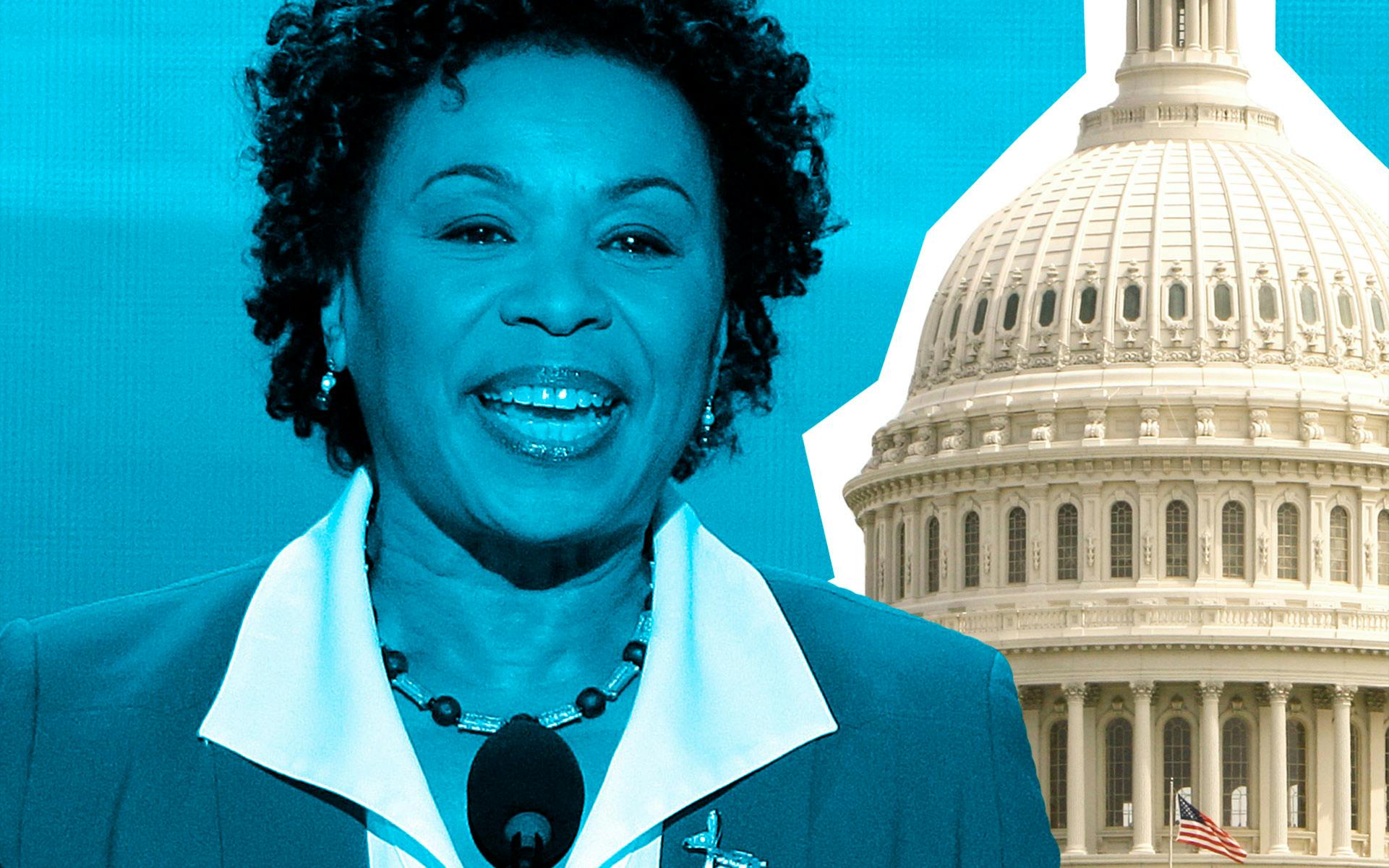Six years after introducing the Secure and Fair Enforcement (SAFE) Banking Act, a cannabis banking reform measure, co-author Denny Heck finally saw it enjoy its first committee hearing in Congress on Wednesday.
The number of banks and credit unions willing to handle cannabis money is growing, but they still represent only a tiny fraction of the industry.
“We are all late,” Rep. Heck (D-WA) said during his opening statement before the House Financial Services Subcommittee on Consumer Protection and Financial Institutions. “It’s been six years since under the leadership of Congressman Perlmutter that we have introduced this bill and pounded the table and warned about the risks to public safety of an all cash businesses. We asked for hearings and were met with silence.”
“But today, after six years, we finally have the hearing. And it comes too late to prevent dozens of armed robberies in my home state of Washington. We can fix this. We have the power in this committee to prevent murders and armed robberies and we must use it.”
Though it was first introduced in 2013, a newly revised draft of the SAFE Banking Act was discussed during the hearing, and Rep. Heck and Rep. Ed Perlmutter (D-CO) said they will formally introduce the legislation by the end of the month.
Legal but not Bankable
Most Americans live in states where marijuana is legally available in some form. But there’s a problem when it comes to banks: Most don’t want anything to do with money from the cannabis industry for fear it could expose them to legal trouble from the federal government, which still considers marijuana illegal. The number of banks and credit unions willing to handle cannabis money is growing, but they still represent only a tiny fraction of the industry.
That conflict has left many growers and sellers in the burgeoning cannabis industry in a legal dilemma, shutting them out of everyday financial services like opening a bank account or obtaining a credit card. It also has forced many businesses to operate only in cash — sometimes vast amounts — making them ripe targets for crime.
A Long Witness List
Hearing witnesses included Fiona Ma, California State Treasurer; Maj. Neill Franklin (Ret.), Baltimore City and Maryland State Police Departments, and Executive Director, Law Enforcement Action Partnership (LEAP); Rachel Pross, Chief Risk Officer, Maps Credit Union, on behalf of Credit Union National Association (CUNA); Gregory Deckard, president, CEO and chairman, State Bank Northwest, on behalf of Independent Community Bankers of America (ICBA); Corey Barnette, owner, District Growers Cultivation Center and Metropolitan Wellness Center; and Jonathan Talcott, chairman of the board of Smart Approaches to Marijuana.
The questions and answers that followed during the nearly five-hour hearing touched on dozens of safety issues of a cash-only business; problems with not having a paper trail for transactions that hindered potential investigations of law enforcement; employees not being able to get their own banking services; and issues with dispensaries getting flagged at banks for large cash deposits.
Gregory S. Deckard, who spoke on behalf of the Independent Community Bankers of America, said the cloud of legal uncertainty was inhibiting access to banks while creating safety hazards for businesses.
The proposal, he said, “would offer the needed clarity” for more financial institutions to welcome the marijuana industry as customers.
AOC Surfaces the Racial Wealth Gap
Rep. Alexandra Ocasio-Cortez (D-NY), a new member of the financial services committee, asked about the racial wealth gap in cannabis. She noted that the private for-profit incarceration industry is a $5 billion dollar business, and that the majority of people incarcerated for minor cannabis offenses are black and Latino.
In the cannabis industry, it looks like 'the people most impacted' by the war on drugs 'are last in the door.'
She also observed that ownership in the cannabis industry is almost all white. “Are we compounding the racial wealth gap now?,” she asked dispensary owner Cory Barnette. She also asked if the cannabis industry is representative of the communities that have had to bear the biggest brunt of injustice based on prohibition of cannabis.
Barnette was blunt in his response. “Absolutely not,” he said.
Barnette said there could be a situation where large private equity firms making money in one part of economy – such as hedge funds, or for-profit incarceration businesses – would always have access to banking and not be asked about where they got their money.
Shop highly rated dispensaries near you
Showing you dispensaries near“Really what this looks like is that the folks that profit from for-profit incarceration get to profit off marijuana first, while the people most impacted are last in the door,” said Ocasio-Cortez. “Would you recommend that in opening this industry up, we should prioritize front line communities that were most impacted to be licensed first to reap some benefits?”
Barnette agreed.
Opposition: Too Much, Too Soon
In opposition to the bill, and in fact, to any ability by the subcommittee to help advance the banking issue, was Rep. Blaine Luetkemeyer (R-MO), ranking member of the Consumer Protection and Financial Institutions Subcommittee. He echoed comments from a few others on the committee. “We are putting the cart before the horse by addressing in this subcommittee before the drug is rescheduled,” he said.
Rep. Andy Barr (R-KY) said that, even if they were to pass Perlmutter’s legislation, it would not solve the problem. Asked if he would vote to delist cannabis, he said he wouldn’t. “But Congress would have to make the same moves, the same policy choices, that we did with industrial hemp,” Barr said. “And this Congress has not done that.”
Testimony from LEAP Executive Director Neill Franklin included reports of robbery and assault that result from the cash-only nature of the business. “I fear dispensary employees being at great risk who are protecting that cash,” Franklin said. “I fear for the safety of those transporting that cash.”
An employee getting a paycheck in cash is a target, Franklin added. He gave an example of a dispensary employee in Orange County, CA, who was kidnapped, zip-tied, then tortured and taken into the desert where the kidnappers believed he had buried large sums of money. “They burned him with a blow torch, cut off his penis and doused him with bleach before dumping him along the roadside,” Franklin said.
Industry Leaders Watch Around the Country
Many in the cannabis industry watched the committee hearing online, including many at the National Cannabis Industry Association’s seed-to-sale show in Boston.
Andrew DeAngelo, co-founder and general manager of Harborside, one of California’s first medical dispensaries, said that he would want to remove cannabis from the controlled substances act as soon as possible and send that to the president’s desk. “But if we are going to take it piecemeal and do banking first, treat us like any other business and let the banks assess risk,” he told Leafly on the show floor in Boston. “Let the free market do what it does, man. We are talking about goods and services, and that’s what cannabis is. I get that Pelosi has lots of fish she has to put in the fryer, and I wouldn’t expect us to be at the top of the list. But to be at the bottom and locked in a closet with a chain around it and a big sign on it, I don’t appreciate either.”
During his keynote speech at the NCIA Boston show, Adam Bierman, co-founder and CEO of MedMen, one of the largest retail dispensaries in the country, said about the hearing that he thinks people get too fixated on individual events or milestones. “It’s about momentum and progress,” Bierman said. “This is evolutionary, not revolutionary. This is about creating a snowball that has got so much momentum that it’s going to knock the house down when it gets down the hill.”
In Massachusetts, the few dispensaries that have opened all have banking services. Steve Hoffman, chairman of the Massachusetts Cannabis Control Commission, told Leafly he spoke with the Massachusetts Banking Association about a year ago about the issue. Hoffman has an extensive background in business and finance, but is new to the cannabis industry.
“The industry is complicated and so new,” he told Leafly. “But I like hard stuff, and I am a little bit of a masochist. Even if the hearing went well, there’s no telling how long it will be before the banking issue is resolved. I can’t forecast when, but I know it’s going to happen,” he said.






